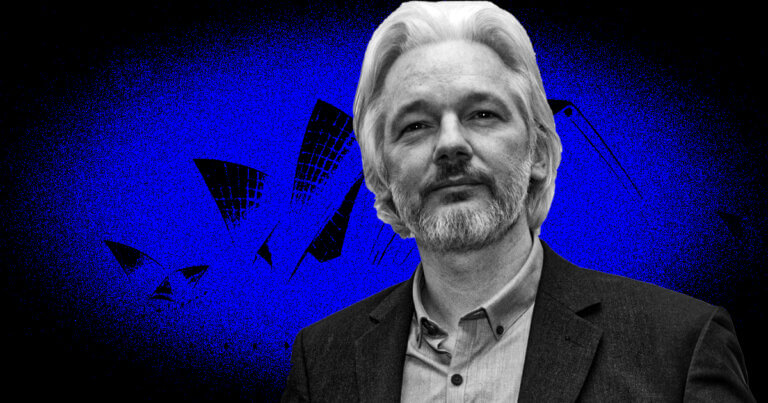Julian Assange, the founder of WikiLeaks, has been released from Belmarsh prison in the UK after reaching a plea deal with US authorities, marking a significant development in his long-running legal saga. WikiLeaks said Assange left the maximum security prison on June 24, 2024, after spending 1,901 days there.
The WikiLeaks X account posted,
“Julian Assange is free. He left Belmarsh maximum security prison on the morning of 24 June, after having spent 1901 days there. He was granted bail by the High Court in London and was released at Stansted airport during the afternoon, where he boarded a plane and departed the UK.”
Assange was granted bail by the High Court in London and released at Stansted Airport, where he boarded a plane and left the UK. He is expected to plead guilty to a single criminal count of conspiring to obtain and disclose classified US national defense documents. The sentencing, where he is due to be credited for 62 months already served, will take place on the island of Saipan in the Northern Mariana Islands.
Assange’s wife, Stella, told the BBC,
“The important thing here is that the deal involved time served – that if he signed it, he would be able to walk free. He will be a free man once it has been signed off by a judge and that will happen some time tomorrow.”
This development marks a potential end to Assange’s prolonged legal battle, which began with WikiLeaks’ publication of classified US documents in 2010. The plea deal, if approved by a judge, would conclude the US government’s pursuit of Assange and allow him to return to Australia after years of confinement.
Stella Assange described her emotions following Julian’s release,
“I mean, I’m just elated,” she said. “Frankly, it’s just incredible. It feels like it’s not real […] We weren’t really sure until the last 24 hours that it was actually happening.”
Assange’s role in Bitcoin
WikiLeaks began accepting Bitcoin donations in 2011, making it one of the early high-profile crypto adopters. Satoshi himself said, “It would have been nice to get this attention in any other context.” WikiLeaks has kicked the hornet’s nest, and the swarm is headed towards us. WikiLeaks’ adoption of Bitcoin provided crucial funding for the organization when it faced financial blockades while simultaneously boosting Bitcoin’s legitimacy and utility.
In a 2014 interview, Assange called Bitcoin “the most interesting thing on the internet” and praised its potential beyond payments, particularly its ability to provide globally verifiable proof publishing at a certain time. Since then, Bitcoin’s value has increased dramatically, demonstrating the prescience of Assange’s assessment.
During Assange’s legal battles, supporters created a Decentralized Autonomous Organization (DAO) to fund his defense, raising over 16,500 ether—equivalent to over $55.2 million at current prices. This innovative use of crypto technology emphasizes the intertwined history of WikiLeaks, freedom of information, and the rise of cryptocurrencies as tools for financial sovereignty and resistance against censorship.
As Assange prepares for his court appearance in Saipan, the international community awaits further details on the finalization of the plea deal and his return to Australia. This development not only marks a significant moment in Assange’s personal journey but also highlights the ongoing debates surrounding press freedom, government transparency, and the role of cryptocurrencies in supporting controversial causes.
The post Julian Assange free from prison – leaves UK for Saipan after striking US deal appeared first on CryptoSlate.





